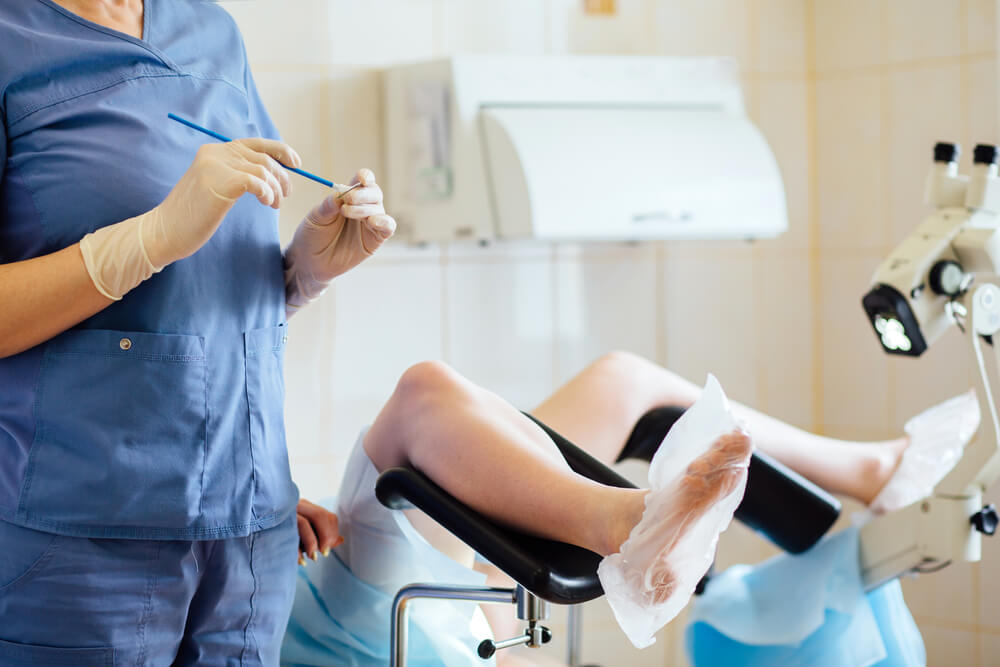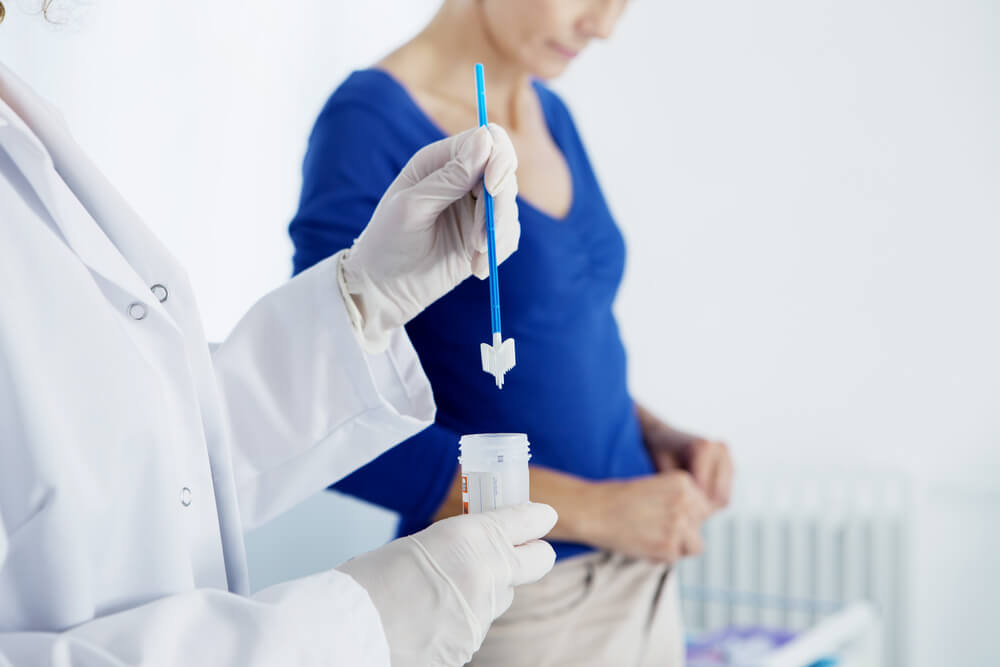Can You Get a Pap Smear on Your Period?
Sometimes our menstrual cycles are regular, and we can anticipate when they are going to occur. So, we schedule our gynecological care appointment around it. Still, sometimes, periods can be irregular, and it is hard to time them when scheduling an appointment with your OB-GYN, which is usually done in advance. You may be wondering, “can you get a pap smear while on your period,” or “can I get a pap smear on the last day of my period?” Before we answer this, let’s talk about the pap test itself.
What is a Pap Smear?
A pap smear screens for cervical cancer or abnormal cells in the cervix. Precancerous conditions or sexually transmitted infections can cause cervical cancer. To collect a sample of these cells for screening, your doctor will scrape the lining of your cervix, which is the opening of your uterus. The lining of the cervix is a sensitive area, so it is normal for a pap test to cause some reactivity, including spotting, which is typically light and resolves on its own.
What Happens During a Pap Test?

Similar to a standard pelvic exam in your gynecologist’s office, you will lay down on the exam table and place your feet in the stirrups. Your doctor will then use a speculum to widen the vaginal opening, allowing them to properly see the upper vagina and cervix to take an accurate sample of cells with a scraper or brush. This sample is sent to a lab to screen for health conditions. If abnormal cells are present, your doctor may order a second test or recommend a cervical exam and biopsy called a colposcopy.
Mild discomfort, bleeding, or cramping after a pap smear is to be expected because this area of our body is so sensitive! Our blood rushes to the cervix and other reproductive organs during a pap smear or pelvic exam, explaining why the irritation or bleeding may occur. On the other hand, some side effects from the screening are not normal, such as heavy bleeding or severe pain.
What Causes Bleeding After a Pap Smear?
There are several things that may increase the chance of bleeding or cramping after a pap smear. To put your mind at ease, it is helpful to know about these various factors to better identify the source of your discomfort or symptoms. Hormonal contraception, such as birth control pills, elevates your hormone levels and causes your cervix to become more sensitive, making bleeding more likely. Vaginal infections, such as STIs, STDs, and yeast infections, can create tenderness in the cervix and may cause bleeding after a pap smear as well.
Bleeding should end within a few hours if the cause of it is from the cervical scrape itself, and over the following two days, light spotting may persist. Unless your doctor conducted the pap smears during your period and you are currently menstruating, bleeding after a pap smear for a week is not normal. If you experience bleeding, we recommend avoiding tampons and vaginal penetration for three days after the test to allow the area to heal. If you have pap smears during your period or a pap smear on the last day of your period, you may want to use a pad or sanitary napkin instead of tampons as the area will be very sensitive.
Things to Look Out for After Pap Smear
You now know it is not uncommon for light bleeding or spotting to occur after the screening. Sometimes, concerning symptoms may appear after the pap smear test, including heavy bleeding or painful cramping, extended bleeding that is not concurrent with your menstrual cycle, and more. If any of these concerning symptoms appear following your appointment, we recommend consulting your physician:
- Severe cramping
- Bleeding that is not your menstrual cycle
- Heavy bleeding that requires a pad
- Bright red or dark clotted blood
- Bleeding that persists after three days
Never assume the cause of irregular bleeding after a pap smear or in general without speaking to your doctor about your symptoms first and being examined if needed. As we mentioned before, the bleeding or spotting may be caused by pregnancy or vaginal infection as well. It is good to note that a pap smear or pelvic exam should never cause serious or debilitating pain and if you are experiencing any of the signs and symptoms listed, promptly reach out to your physician. This test should never cause significant or debilitating pain.
Pap Smears During Period

It is normal to ask yourself questions like “can you get a pap smear on your period?” or “can I get a pap smear on the last day of my period?” And yes, you can get a pap smear on your period! It is worth noting that doing so may not be ideal if you are experiencing a heavier menstrual flow as significant amounts of blood can obscure details of the cells, making them hard to see, affecting your results. So the general rule of thumb is that pap smears during a period are completely acceptable, as long as your period is not very heavy.
Because there is no right answer for what qualifies as too heavy, try to use your best judgment. For example, getting a pap smear on the last day of your period is probably ok, but perhaps not on the first or second day when you are still filling up a pad or tampon. If anything, it is worth double-checking with your doctor to see what they would recommend. Can you get a pap smear while on your period is ultimately up to you and your physician, and they may even recommend waiting until your period is over to be safe about protecting the accuracy of your results.
On the other hand, you have to consider what you are comfortable with as well! If you do not feel great about getting an annual exam or pap smear while you are menstruating is totally understandable, and your doctor’s office can reschedule your appointment for you. Overall, whether you can get a pap smear on your period is up to you, your doctor’s professional opinion, and the heaviness of your period flow.
A Note From University Park OB-GYN
Now you know that it is ok to get pap smears during periods! You also now know how your pap test will go, what symptoms you may experience, and what to look out for after the test. It is recommended for women to have their first pap smear at age 21, and if results are normal, it may be performed every three years. If you have experienced bleeding after a previous pap smear or you are experiencing irregular bleeding in general, we recommend consulting your doctor to determine the cause.
At University Park OBGYN, we always encourage our patients to ask any questions they may have about their gynecological care. There is no such thing as a bad question, and you should never feel anxious or embarrassed when it comes to your body and healthcare. Our team of highly trained and skilled professionals provides the compassionate, understanding care every woman deserves. Visit our website or give us a call to schedule your annual visit today!


